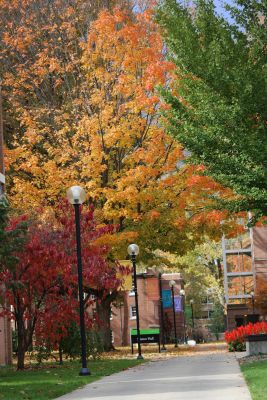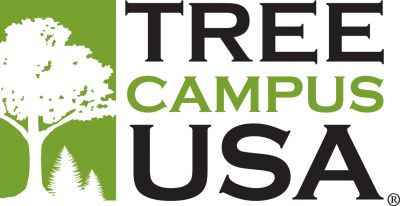Arbor Day Foundation honors Goshen College as “Tree Campus USA”

Goshen College has been honored with 2014 Tree Campus USA® recognition by the Arbor Day Foundation for its commitment to effective urban forest management.
“The Goshen College campus has over 1,100 trees on 135 acres,” said Glenn Gilbert, sustainability coordinator and utilities manager. “For years we have made a commitment to replace any tree that dies or needs to be removed for other reasons.”
Tree Campus USA is a national program created in 2008 by the Arbor Day Foundation, and sponsored by Toyota, to honor colleges and universities for effective campus forest management and for engaging staff and students in conservation goals. Goshen College achieved the title by meeting Tree Campus USA’s five standards, which include maintaining a tree advisory committee, a campus tree-care plan, dedicated annual expenditures for its campus tree program, an Arbor Day observance and student service-learning project.
There are about 230 Tree Campus USA schools, and Goshen College joins 10 others in Indiana. The City of Goshen was also named a “Tree City USA” 18 years ago.
“Because of our strong commitment to sustainability and ecological stewardship, and because our campus is located within a Tree City USA, it only made sense that we apply to become a tree campus,” Gilbert said.

The Arbor Day Foundation and Toyota have helped campuses throughout the country plant thousands of trees, and Tree Campus USA colleges and universities invested more than $29 million in campus forest management last year. More information about the program is available at arborday.org/TreeCampusUSA.
“Students are eager to volunteer in their communities and become better stewards of the environment,” said Matt Harris, chief executive of the Arbor Day Foundation. “Participating in Tree Campus USA sets a fine example for other colleges and universities, while helping to create a healthier planet for us all.”
Watch: Goshen’s Urban Forest: The Aesthetic Value
See also:
Goshen’s Urban Forest: The Ecological Value




